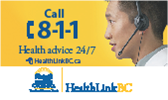August 3, 2024
Vancouver Coastal Health has provided guidance with on the prevention and control of gastroenteritis outbreaks, e.g. Norovirus, Rotavirus in licensed child care facilities in Vancouver Coastal Health (VCH). Under the Public Health Act, the Reporting Information Affecting Public Health Regulations and the Child Care Licensing Regulation, the Medical Health Officer (MHO) and/or designate has the authority and responsibility to direct the management of outbreaks in the community including childcare facilities.
As part of this guidance, children should NOT attend school for at least 48 hours after their last GI symptom or as directed by the MHO or designate. Please let us know if your child is absent due to gastroenteritis.
Public-health officials are asking all British Columbians to get their influenza and COVID-19 immunizations as soon as possible, as rates of respiratory illnesses are on the rise throughout the province. Please visit this page for more information.
The Ministries of Health and Education recognizes that COVID is no longer a pandemic. As such, the guidelines for COVID will be similar to other respiratory infections and rely primarily on self-management – unless otherwise notified.
As a small school with strong traffic controls (limiting entrance to our school only to enrolled students/families and staff) and ongoing classroom cleaning throughout each day, the risk for virus spread is low. Our students and teachers have been very proactive in reminding themselves and each other to wash their hands throughout the day.
The school practices stringent cleaning routines and facilities are sanitized regularly. North Creek and Anchor Point facilities have been and will remain vigilant with regards to cleaning, hand hygiene, and educating students on respiratory etiquette.
All children who are sick must remain at home. Parents must assess their child/ren daily before sending them to school. If you are unsure whether or not your child is sick, you must practice self-isolation and use the BC COVID-19 Self-Assessment Tool. You may also contact 8-1-1, or the local public health unit to seek further input as well as your family physician or nurse practitioner to be assessed for COVID-19 and other infectious respiratory diseases.
A child is considered sick if they exhibit the following symptoms:
• fever of 38.3 degrees Celsius (100 degrees Fahrenheit) or higher
• diarrhea
• vomiting
• coughing excessively
• are infectious (e.g. runny nose with green or yellow mucous)
• have a communicable disease (e.g. conjunctivitis/pink eye).
It is essential you keep your child at home if you feel that your child is too sick to participate in our program, including participation in outdoor activities. All communicable diseases must be reported. Please bring a note from your doctor stating that your child is no longer infectious when your child returns to school.
If your child becomes sick during the day, you will be called to take your child out of school for the remainder of the day. If we cannot contact you, we will call your emergency contact to pick your child up. Your child will be placed in an isolated room while awaiting pick-up.
Please let us know if your child will be absent due to illness. This enables us to account for missing students and to be aware of patterns of illnesses that might be spreading.
Per Section6(1) of the provincial Student Records Order, independent school authorities are required to disclose student record information to a person who is planning for the delivery of, or delivering, health services to a student/child. This includes the requirement that the school provinces the health authorities with annual class lists.
Please review our Communicable Disease Plan for more information.
 Providing students with a physical, emotional, and psychological school environment that is safe and respectful is our highest priority. We take a coordinated whole-school approach to bullying prevention. As part of this approach, students have the opportunity to contribute and to voice issues and concerns on emerging safety and well- being policies. Visit our ERASE (Expect Respect and Safe Education) page for more information.
Providing students with a physical, emotional, and psychological school environment that is safe and respectful is our highest priority. We take a coordinated whole-school approach to bullying prevention. As part of this approach, students have the opportunity to contribute and to voice issues and concerns on emerging safety and well- being policies. Visit our ERASE (Expect Respect and Safe Education) page for more information.
 HealthLinkBC is the gateway to access non-emergency health and safety information in BC. It offers services by phone (8-1-1) and on the net (click image on the left). It also has a collection of print (BC HealthGuide handbook and HealthLinkBC files), and telephone resources, which put both services and health information into the hands of BC residents. HealthLinkBC’s goal is to enable residents to better manage their health and the health of their families.
HealthLinkBC is the gateway to access non-emergency health and safety information in BC. It offers services by phone (8-1-1) and on the net (click image on the left). It also has a collection of print (BC HealthGuide handbook and HealthLinkBC files), and telephone resources, which put both services and health information into the hands of BC residents. HealthLinkBC’s goal is to enable residents to better manage their health and the health of their families.
ALLERGIES
All information concerning your child’s allergies, food or environmental must be provided to the school. This information, which should include the indications of an allergic reaction and actions to be taken, will be kept on file to be used in case of emergencies.
Certain foods such as peanuts and peanut products will be omitted from our school snack entirely if the Head of School deems it to be hazardous. Class allergy information is sent out at the beginning of each year and updated as necessary. We ask all families to be sensitive to allergies by avoiding the sending in of class birthday treats or snacks that contain substances that any students may be allergic to.
